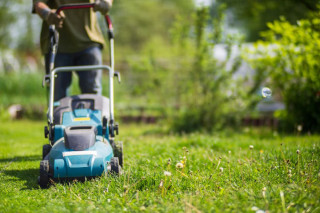Posted Thursday September 25, 2025
When people think about hearing damage, they often imagine rock concerts, fireworks, or loud construction sites. But the truth is, many of the sounds we’re exposed to in daily life are loud enough to cause long-term harm if we’re not careful. Noise-induced hearing loss (NIHL) doesn’t happen overnight — it builds slowly over time, often without us noticing until it’s too late.
The surprising culprits
Here are some everyday noises that may be putting your ears at risk:
-
Hair dryers and blenders (85–95 dB): Harmless as they seem, using these frequently and close to your ear adds up.
-
Vacuum cleaners (70–80 dB): While generally safe for short bursts, long cleaning sessions can still contribute to noise exposure.
-
Traffic and city noise (80–90 dB): Living near busy roads, trains, or airports can mean hours of daily exposure.
-
Lawnmowers and leaf blowers (90–100 dB): A staple of household chores, but easily loud enough to cause damage in under an hour.
-
Gyms and fitness classes (90–100 dB): High-energy playlists are great for motivation, but not so great for your ears.
-
Headphones and earbuds (up to 105 dB): Personal devices are a major contributor to hearing loss, especially if the volume creeps over 60%.
How noise builds up
Think of your ears like a bank account: every bit of noise is a withdrawal. At safe levels, your account balances out. But when sounds get louder — over 85 decibels — the withdrawals happen faster. Every 3 dB increase cuts your “safe listening time” in half. For example:
-
85 dB: up to 8 hours of safe exposure
-
88 dB: 4 hours
-
91 dB: 2 hours
-
100 dB: just 15 minutes
Simple ways to protect your ears
-
Use the 60/60 rule with headphones: listen at no more than 60% volume for no more than 60 minutes at a time.
-
Invest in noise-cancelling headphones so you don’t need to turn up the volume in noisy places.
-
Wear ear protection when mowing the lawn, doing DIY, or using power tools.
-
Take listening breaks throughout the day; your ears need downtime too.
-
Teach kids early: safe listening habits formed young protect hearing for life.
The bottom line
You don’t have to avoid everyday activities to protect your hearing — just be smart about how you listen. If you’re concerned about the sounds you’re exposed to, or if you’ve noticed muffled hearing or ringing in your ears, book a hearing check. Catching noise-induced hearing loss early makes all the difference.
